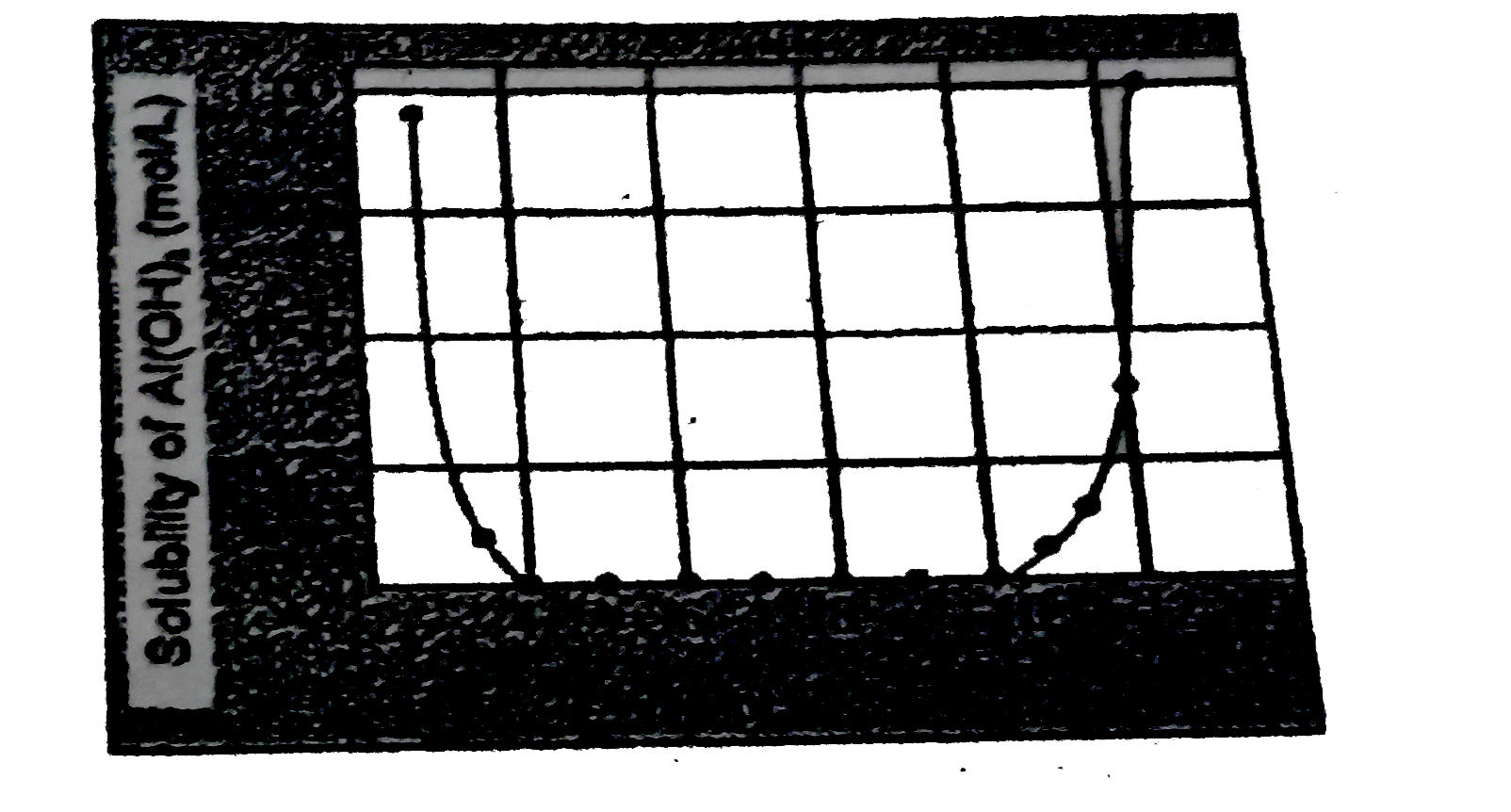Al(OH)3 is amphoteric is nature.
Al−O and O−H bonds can be borken with equal ease in Al(OH)3.
Assertion and reason both are correct statements and reason is correct explanation for assertion.
Assertion and reason both are correct statements but reason is not correct explanation for assertion.
Assertion is correct statement but reason is wrong statement.
Assertion is wrong statement but reason is correct statement
The correct Answer is:A
Step by step video, text & image solution for Al(OH)_(3) is amphoteric is nature. Al-O and O-H bonds can be borken with equal ease in Al(OH)_(3). by Chemistry experts to help you in doubts & scoring excellent marks in Class 11 exams.
Topper's Solved these Questions
- BOOK - MODERN PUBLICATIONCHAPTER - S-BLOCK ELEMENTS ( ALKALI AND ALKALINE EARTH METALS ) EXERCISE - Revision Exercises (Objective/Very Short answer questions(One Word/ Very Short sentence Answer ) )25videos
S-BLOCK ELEMENTS ( ALKALI AND ALKALINE EARTH METALS )
- BOOK - MODERN PUBLICATIONCHAPTER - S-BLOCK ELEMENTS ( ALKALI AND ALKALINE EARTH METALS ) EXERCISE - Revision Exercises (Objective/Very Short answer questions( Short Answer Questions ) )57videos
S-BLOCK ELEMENTS ( ALKALI AND ALKALINE EARTH METALS )
- BOOK - MODERN PUBLICATIONCHAPTER - S-BLOCK ELEMENTS ( ALKALI AND ALKALINE EARTH METALS ) EXERCISE - Revision Exercises (Objective/Very Short answer questions(True or False Questions ))10videos
S-BLOCK ELEMENTS ( ALKALI AND ALKALINE EARTH METALS )
- BOOK - MODERN PUBLICATIONCHAPTER - REDOX REACTIONS EXERCISE - COMPETITION FILE (Objective Questions) (C. MULTIPLE CHOICE QUESTIONS)9videos
REDOX REACTIONS
- BOOK - MODERN PUBLICATIONCHAPTER - SOME BASIC CONCEPTS OF CHEMISTRY EXERCISE - COMPETITION FILE (INTEGER TYPE AND NUMERICAL VALUE TYPE QUESTIONS)10videos
SOME BASIC CONCEPTS OF CHEMISTRY
Similar Questions
Knowledge Check
- Question 1 - Select One
Al(OH)3 is amphoteric is nature.
Al−O and O−H bonds can be borken with equal ease in Al(OH)3.AStatement 1 is true, statement 2 is true, statement 2 si a correct explanation for statement 6BStatement 1 is true, statement 2 is true, statement 2 is not a correct explanation for statement 6CStatement 1 is true, statement 2 is falseDStatement 1 is false, statement 2 is true - Question 2 - Select One
Assertion (A) : Al(OH)3 is amphoteric in nature.
Reason (R) : Al−O and O−H bonds can be broken with equal ease in Al(OH)3.ABoth A and R are true and R is the correct explanation of ABBoth A and R are true but R is not a correct explanation of ACA is true but R is falseDA is false but R is true - Question 3 - Select One
Statement -I Al(OH)3 is amphoteric in nature.
statement -II Al-O and O-H bonds can be broken with equal case in Al(OH)3AStatement I is correct : statement II is correct : statement II is the correct explanation of statement IBStatement I is correct : statement II is correct : statement II is not the correct explanation of statement ICStatement I is correct : statement II is incorrectDStatement I is incorrect : statement II is correct
Why Al2O3 is amphoteric while B2O3 is acidic ?
View SolutionNaOH can be used to seprate Al(OH)3and Zn(OH)2 .
View SolutionAssertion: Al(OH)3 is amphoteric in nature.
Reason: Al(OH)3 is H+ donar acid as well as OH− donar base.View SolutionStatement-1: Al(OH)3 is amphoteric in nature.
Statement-2: It cannot be used as an antacid.View SolutionAmphoterism
Amphoteric oxides, such as aluminium oxide, are soluble both in strongly acidic and in strongly base solutions :
In acid:Al2O3(s)+6H3O+(aq)⇔2Al3+(aq)+9H2O(l)
In base:Al(OH)3(s)+OH−(aq)⇔Al(OH)−4(aq)
Dissolution of Al(OH)3 in excess base is just a special case of the effect of complex-ion formation on solubility.Al(OH)3 dissolves because excess OH− ions convert it to the soluble complex ion Al(OH)−4(aluminate ion)The effect of pH on the solubility of Al(OH)3 is shown in figure.

Other examples of amphoteric hydroxides include Zn(OH)2,Cr(OH)3,Sn(OH)2andPb(OH)2, which react with excess OH− ions to form the soluble complex ion Zn(OH)2−4(zincate ion),Cr(OH)−4(chromite ion),Sn(OH)−3 , Fe(OH)2andFe(OH)3 , dissolve in strong acid but not in strong base.
Zn(OH)2 is a amphoteric hydroxide and is involved in the following two equilbria in aqueous solutions
Zn(OH)2(s)⇔Zn2+(aq)+2OH−(aq),Ksp=1.2×10−17
Zn(OH)2(s)+2OH−(aq)⇔[Zn(OH)4]2−(aq),K∘=0.12
At what pH the solubility of Zn(OH)2 be minimum ?View Solution

